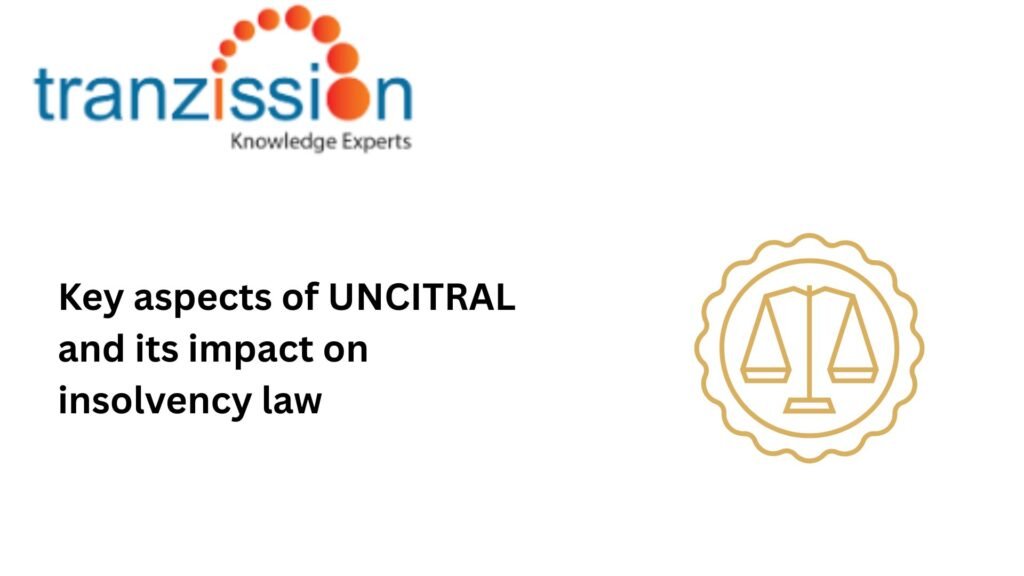Blog
As per the Insolvency and Bankruptcy Code, 2016 and the relevant regulations, an Information Memorandum under IBC is a comprehensive document drafted by the resolution professional that contains all the relevant information of the corporate debtor to be conveyed to potential buyers and investors. This document also assists the insolvency professional in preparing the resolution […]
Companies will go through the insolvency process only when they are under financial duress. In today’s industry this has become often due to the effects of trade disputes, social disruptions, political uncertainties, etc, and not only because of bad management. Insolvency risk is the possibility that a company may be unable to meet its payment […]
Key aspects of UNCITRAL (United Nations Commission on International Trade Law) plays a crucial role in international insolvency law through its Model Law on Cross-Border Insolvency, which was approved by the United Nations General Assembly through a resolution in 1997. The Model Law allows for nations to alter, exclude, or include certain provisions in addition […]
When one company within a group becomes insolvent, its financial troubles can affect group companies due to shared financial obligations, making separate insolvency proceedings inefficient. Most insolvency laws are designed to handle individual companies, including the Insolvency and Bankruptcy Code, 2016 (the IBC). Therefore, a dedicated Need for Group Insolvency framework is needed to effectively […]
Companies are now evaluated on their environmental impact, social responsibility, and governance practices, and not just their financial performance. Therefore, they are facing pressure from investors to improve these factors, leading to increased focus on sustainability initiatives, reporting, and transparency to attract capital. In India, there is a need for detailed mechanisms specifically on ESG […]
When a power company is financially distressed, its creditors can initiate an insolvency resolution process where IBC in the Power Industry play important role, to either restructure the debt or find a new investor to take over the project. This framework facilitates a more streamlined approach to managing financial difficulties within the power sector, which […]
Insolvency laws aim to provide a framework for dealing with situations when an individual or company is unable to pay their debts as they become due. It ensures fair and equitable treatment of creditors and potentially allows for the recovery of assets. The framework helps to ensure that creditors can recover their dues, reducing the […]
Welcome to WordPress. This is your first post. Edit or delete it, then start writing!
To understand the difference between the SARFAESI Act and IBC, it’s important to recognize that the Insolvency and Bankruptcy Code (IBC), introduced in 2016, was designed to streamline the process of managing an insolvent’s liabilities and creditor claims through a structured, time-bound resolution. Unlike the SARFAESI Act, which primarily empowers secured creditors to seize and […]
All stakeholders, including NGOs in Insolvency Cases (non-governmental organizations), have an important role in insolvency matters. A non-profit or a charitable company is considered a section 8 company, incorporated under the Companies Act, 2013 that has defaulted the debt or payment of services availed by them to promote its objectives. When such a company faces […]


